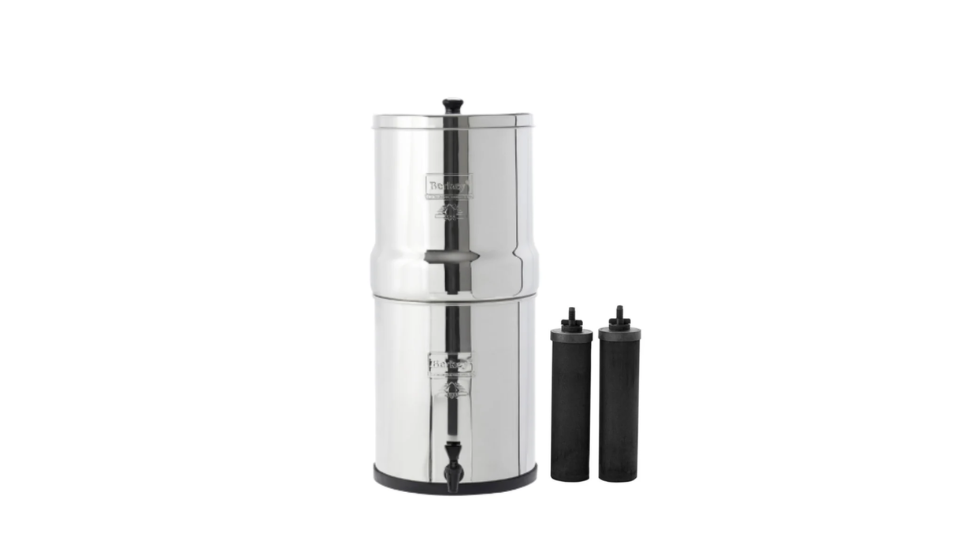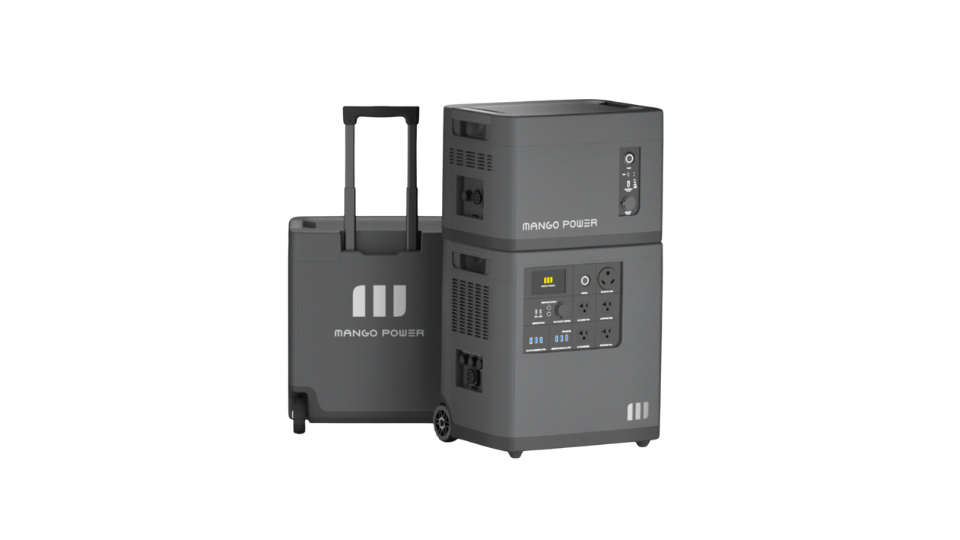Your Cart is Empty
TALK TO AN EXPERT: 1-844-945-3625
Menu
-
- Water Filter Systems
- Portable Solar Generators
- Propane Wall Heaters
- Composting Toilets
- DIY Buildings & Kits
- Canvas Tents
- Homestead & Off Grid Supplies
- Chicken Coops
- Harvest Right Freeze Dryers
- Emergency Food Kits
- Hunting Blinds
- MrCool DIY Mini Splits
- Solar Air Conditioners
- Solar Fridge & Freezers
- Camping Coolers
- Electric Coolers
- Overlanding Gear
- Two Person Cots
- Portable Sauna Tents
- Incinerating Toilets
- Dairy Equipment
- Coolers
- Faraday Defense
- EMP Shield
- Hunting Blinds
- Compost Tumblers
- Drip Irrigation Kits
- Shade Cloth
- Propane Fireplace
- Portable BBQ's
- Brands
- Chicken Coop Brands
- Composting Toilet Brands
- Solar Brands
- Food Storage Brands
- Freeze Dryer Brands
- Water Filtration Brands
- Incinerating Toilet
- Waterless Toilet Brands
- Heater Brands
- EMP Shield Brands
- Tent Brands
- Cot Brands
- Cooler Brands
- Dog Kennels
- Greenhouse & Gazebo Brands
- Portable Saunas
- DIY Shed Kits
- About Wild Oak Trail
- Resource Center
- The Ultimate Prepper & Emergency Survival Blog - Includes Free eBook
- Beginners Guide to Living off The Grid - Includes Free eBook
- Building Your Own Emergency Food Supply
- Best Survival Food to Be Prepared for Anything
- Berkey Lab Tests & Certifications
- Federal Solar Tax Credit - What You Need to Know
- BLOG
-
- 1-844-945-3625
- Login

TALK TO AN EXPERT: 1-844-945-3625
25 Items Every Prepper Should Stockpile
by Patricia Turla 10 min read
Preparing for emergencies isn’t just for the overly cautious—it’s a smart move for anyone. Natural disasters, unexpected power outages, and other unforeseen events can disrupt daily life. Having a well-stocked supply of essential items ensures safety, comfort, and peace of mind.
Below are 25 items every prepper should stockpile. From emergency food supplies like canned fruits and freeze-dried foods to medical supplies and baby items, these essentials will help you be ready for anything.
Key Takeaways
- Food: Stock non-perishables like rice, pasta, beans, canned goods, freeze-dried meals, and baby food. Use airtight containers for storage.
- Water: Store bottled water and large containers. Use filtration systems and purification tablets.
- Medical Supplies: Keep first aid kits, prescription medications, and over-the-counter medicines.
- Tools and Equipment: Include multi-tools, knives, fire-starting kits, radios, flashlights, and lanterns.
- Clothing and Shelter: Stock warm clothing, sleeping bags, blankets, rain gear, tents, and tarps.
- Fuel and Power: Have propane, butane, wood, and portable generators.
- Miscellaneous Essentials: Include self-defense tools, survival guides, first aid books, walkie-talkies, and signal flares.
Emergency Preparedness Food Supply and Storage
Building an emergency food supply is essential for preparedness.
1. Non-Perishable Foods
Non-perishable food is the foundation of any good food supply due to its long shelf life. Some key items to consider include:
- Rice: Brown rice and white rice are staples in many diets and can last for years if stored properly. It also provides essential carbohydrates and is easy to prepare.
- Pasta: Another versatile carbohydrate source, pasta can be stored for extended periods and can be paired with various sauces and canned goods.
- Beans: Dried beans such as black beans, kidney beans, and chickpeas are excellent sources of protein and fiber. Beans are also easy to store and can be used in a variety of dishes.
2. Canned Fruits and Vegetables
Canned foods are necessary for maintaining a balanced diet during emergencies, such as:
- Tomatoes: Canned tomatoes and tomato sauce can be used in a myriad of recipes, from soups to stews, and are rich in vitamins A and C.
- Peaches: Canned peaches offer a sweet treat and are packed with vitamins and minerals that are essential for maintaining health.
- Corn: Canned corn is not only delicious but also a good source of fiber and essential nutrients.
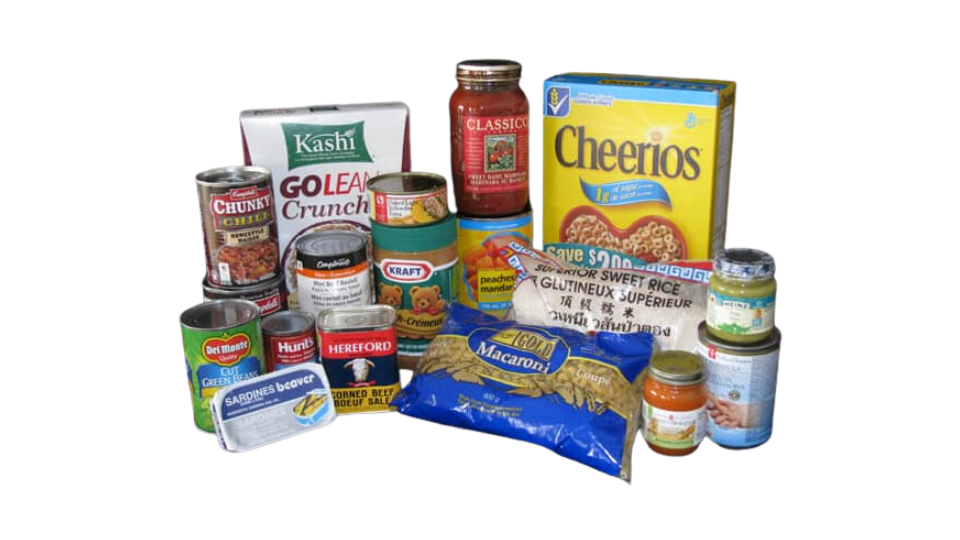
3. Canned Meats and Fish
Protein is a critical component of any diet, especially in emergency situations. Canned meats and fish provide a source of protein and can be used in various recipes.
- Tuna: Canned tuna is a popular choice due to its versatility and high protein content. It can be added to salads, sandwiches, and casseroles.
- Chicken: Canned chicken is another protein source that can be used in soups, stews, and salads.
- Beef: Canned beef can be used in a variety of hearty meals, providing essential nutrients and protein.
4. Freeze-Dried Meals
For those who need emergency food supplies that are lightweight and have a super long shelf life, freeze-dried meals are an excellent choice. These meals are often used by backpackers and the military due to their convenience and ease of preparation. They also last up to 25 years in your pantry so you'll know you have food when you need it.
- Backpacking Meals: These meals are specifically designed to be lightweight and easy to prepare, making them perfect for emergency situations.
- Military Rations: Reliable option for emergency food supplies.
5. Grains and Legumes
Grains and legumes are essential for a balanced diet and are easy to store.
- Oats: Oats are grains that are rich in fiber and essential nutrients and are used in breakfast dishes, baking, and even savory meals.
- Lentils: Lentils are a great source of protein and fiber, making them a nutritious addition to any emergency food supply.
- Quinoa: Quinoa is a protein-packed grain that is also rich in fiber and essential amino acids.
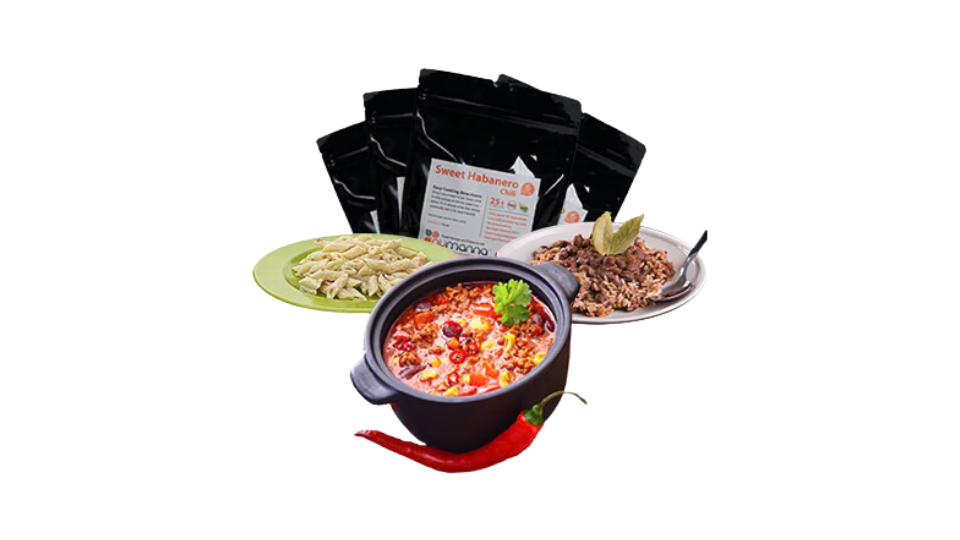
6. Baby Food
Ensure you have an adequate stock of age-appropriate, nutritious options for young children.
- Pureed Fruit and Vegetables:These provide essential vitamins and minerals for growing infants.
- Baby Cereals:Fortified with iron and other nutrients, baby cereals are a good source of nutrition for babies.
- Ready-to-Eat Pouches: Convenient and easy to store, these pouches offer a variety of flavors and balanced nutrition for toddlers.
7. Food Storage
Proper food storage ensures the longevity and safety of your food supply. Use airtight containers, cool and dry environments, and regular checks for spoilage to maintain the quality of your stored food.
- Airtight Containers:Essential for keeping out moisture and pests, preserving the freshness of food.
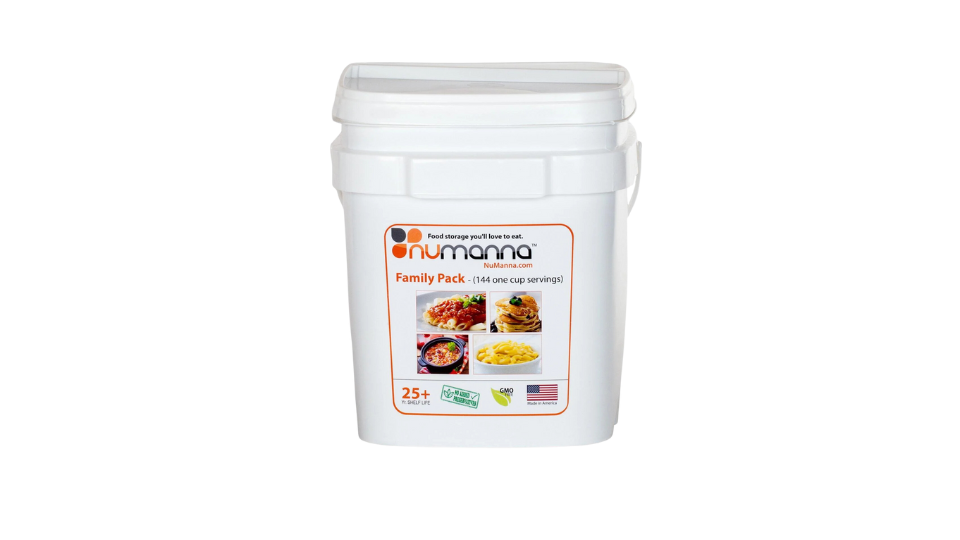
Water
When it comes to emergency preparedness, water is an essential resource that often tops the list of items every prepper should stockpile.
8. Water Storage
Water storage options vary widely, from bottled water to large water containers. Bottled water has a relatively long shelf life and is easy to store in large quantities. However, it is essential to check expiration dates regularly to ensure the water remains safe to drink.
Large water containers, on the other hand, can store more amounts of water. These containers are designed to keep water safe from contamination and are perfect for situations where access to clean water may be limited for an extended period.
9. Water Filtration Systems
In an emergency, access to clean drinking water might be compromised, making water filtration systems a necessary addition to your emergency supplies. For instance, portable filters are useful for individuals who may need to move frequently or have limited storage space.
Purification tablets are another effective method for making water safe to drink. These tablets are easy to carry and can quickly disinfect water, killing harmful bacteria and viruses.
Medical Supplies
While food with a short shelf life needs regular rotation, medical supplies are a constant necessity in any preparedness plan.
10. First Aid Kits
First aid kits should contain a variety of supplies to address minor injuries and prevent infections.
Bandages of various sizes are vital for covering wounds and preventing contamination. Antiseptics are necessary to clean cuts and scrapes, reducing the risk of infection. Pain relievers, such as ibuprofen and acetaminophen, help manage pain and reduce inflammation.
Immediate treatment of injuries can prevent minor issues from becoming major problems. For example, during a natural disaster, access to medical care may be limited, making a well-stocked first aid kit indispensable.
11. Prescription Medications
For those managing chronic conditions, prescription medications are a non-negotiable part of emergency preparedness. Ensuring a supply of these medications is essential for maintaining health and avoiding complications. A natural disaster or other emergencies might disrupt access to pharmacies and medical services, so having an adequate stockpile is necessary.
Continuity of care is essential for individuals with conditions such as diabetes, hypertension, or asthma. Keeping a detailed list of all prescription medications, including dosages and prescribing doctors, can also be helpful in case of an emergency evacuation.
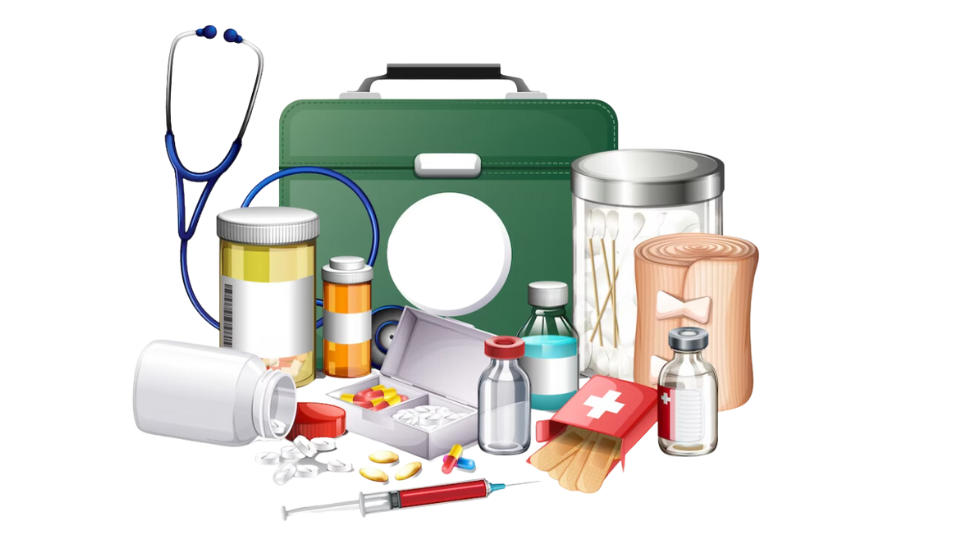
12. Over-the-Counter Medications
Having a variety of OTC medications ensures that you are prepared for minor health issues that can arise unexpectedly. Pain relievers, such as aspirin and naproxen, can alleviate headaches, muscle pain, and other discomforts.
Cold medicines, including decongestants and antihistamines, can manage symptoms of colds and allergies. Antacids are helpful for treating indigestion and heartburn, which can be common during stressful situations.
Tools and Equipment
Equally important are the tools that help you use these supplies effectively, like the following:
13. Multi-Tools and Knives
Multi-tools often include pliers, screwdrivers, scissors, and bottle openers, making them valuable for various tasks. A knife is equally essential, useful for cutting ropes, preparing food, and even self-defense. Preppers should always stockpile a high-quality multi-tool and knife, ensuring they are ready for any challenge that arises.
14. Fire Starting Kits
Fire starting kits can include lighters, matches, and specialized fire starters. Lighters and matches are simple to use and widely available, but having a reliable fire starter, such as a magnesium flint striker, can provide an extra layer of security.
Fire is essential for warmth during cold weather, cooking emergency foods like freeze-dried meals, and signaling for help if needed. Maintaining a stockpile of fire-starting materials ensures you can always generate a fire when necessary.
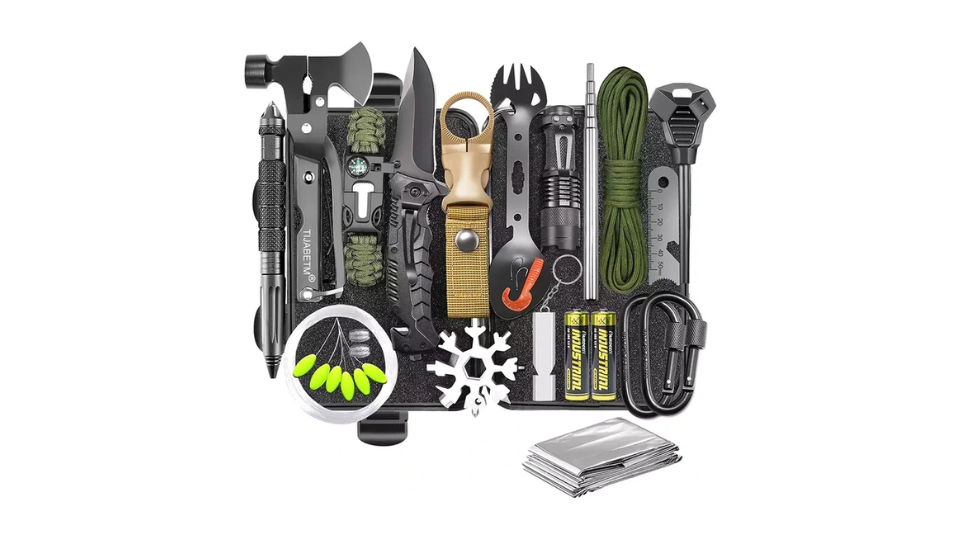
15. Battery-Powered or Hand-Crank Radios
Battery-powered or hand-crank radios provide a reliable means of communication when other systems fail. These radios can receive weather updates, news broadcasts, and emergency alerts, keeping you aware of the situation and any instructions from authorities.
Hand-crank models are particularly useful as they do not rely on external power sources, ensuring you remain connected even during prolonged outages. Including a quality radio in your emergency supplies can help you stay prepared and informed, enhancing your chances of safely navigating any crisis.
16. Flashlights and Lanterns
Lighting helps you perform tasks, find essential items, and avoid accidents in low-visibility situations. Flashlights and lanterns are essential for navigating in the dark, ensuring safety, and providing a sense of security. LED flashlights offer long battery life and bright illumination, making them a top choice for preppers.
Lanterns, especially those with rechargeable or battery-powered options, are perfect for lighting larger areas. Always have extra batteries on hand to ensure your light sources remain functional during extended emergencies.
Clothing and Shelter
Proper clothing and shelter can protect against cold, rain, and other harsh elements.
17. Warm Clothing, Sleeping Bags, and Blankets
Exposure to low temperatures without adequate protection can lead to hypothermia, a potentially fatal condition. By stockpiling thermal wear, sleeping bags, and wool blankets, you can ensure you have the necessary gear to keep yourself and your families warm and safe during emergencies. These items not only provide warmth but also contribute to overall comfort, which is essential for maintaining morale in challenging situations or weather emergencies.
18. Rain Gear
Rain gear, including waterproof jackets and ponchos, is essential for staying dry during wet weather conditions. Wet clothing can rapidly lead to hypothermia, as water conducts heat away from the body much faster than air. Therefore, waterproof jackets and ponchos are advantageous for maintaining dryness.
Waterproof jackets are typically made from materials like Gore-Tex, which are not only water-resistant but also breathable, preventing sweat buildup. Ponchos, on the other hand, offers a quick and easy way to cover both the body and any carried items, such as backpacks.
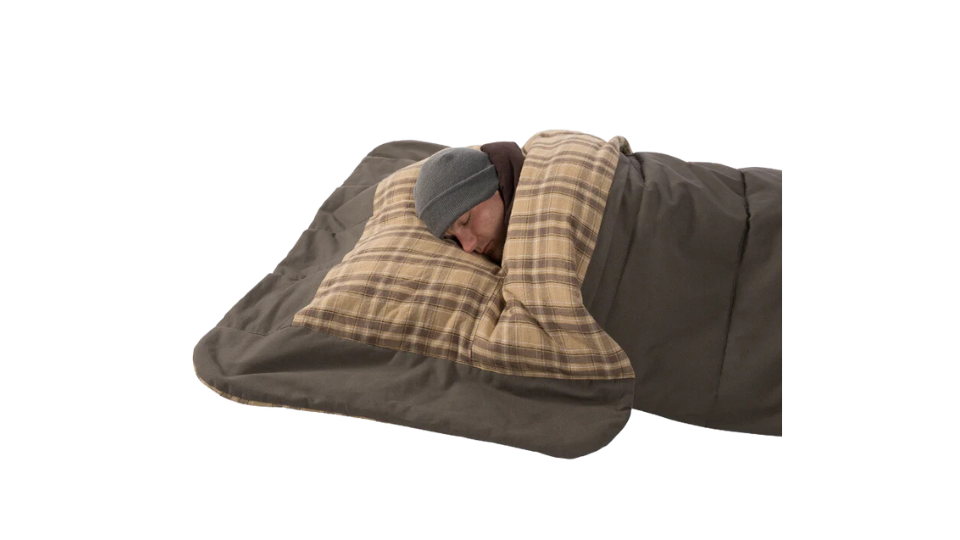
19. Tents and Tarps
Emergency shelters like tents and tarps provide protection from the elements, especially in situations where your home is uninhabitable due to a natural disaster. Tents offer a temporary shelter that protects you from wind, rain, and cold.
In addition to providing a place to sleep, tents also safeguard your emergency supplies, such as food storage and first aid equipment, from the elements. Tarps can also create makeshift shelters, providing immediate protection from rain and wind.
Fuel and Power
The following are some alternative fuel sources and generators that should be a part of your supplies.
20. Alternative Fuel Sources
Cooking and heating are essential during any emergency. Having these fuel sources ensures that you can prepare emergency foods, such as freeze-dried foods and canned goods, and keep your family warm. These fuels are indispensable for long-term food storage, cooking meals, and surviving cold weather conditions:
- Propane: Propane can be stored in large quantities. When using it for a propane stove, grill, or portable heater, it provides reliable energy when electricity is not available.
- Butane: Though it is less effective in extremely cold climates, it’s great for mild conditions.
- Wood: For those who have a fireplace or wood-burning stove, wood is an invaluable resource. It’s widely available, and in a pinch, you can gather it from your surroundings. Wood can keep your home warm during cold weather emergencies and is also great for cooking.
21. Portable Generators
Generators help you maintain a semblance of normalcy by powering lights, heating systems, and cooking appliances.
- Gas-Powered Generators: These generators are the most common and perfect for running essential appliances such as refrigerators, freezers, and medical supplies. However, they require a supply of gasoline, which has a relatively short shelf life and needs careful storage.
- Solar-Powered Generators: A more sustainable and quieter option, solar-powered generators are excellent for long-term use. Although they may not provide as much power as gas generators, they are great for charging small devices and running low-energy appliances.
Miscellaneous Essentials
Some miscellaneous essentials every prepper should consider, from self-defense tools to communication devices and knowledge-building books:
22. Manual Can Opener
In a scenario where electricity is unavailable, a manual can opener becomes indispensable for opening canned vegetables, fruits, meats, and other non-perishable foods. Investing in a durable, high-quality can opener ensures you can always access your food supplies without relying on electricity.
23. Self-Defense Tools
In uncertain times, personal safety becomes paramount. Self-defense tools are essential for protecting yourself and your loved ones, such as:
- Firearms: Firearms provide a powerful means of protection. Proper training and adherence to safety regulations are essential for responsible ownership.
- Pepper Spray: A non-lethal option, pepper spray can deter potential attackers and provide a critical window for escape.
- Personal Alarms: These small devices emit a loud noise to attract attention and scare off threats.
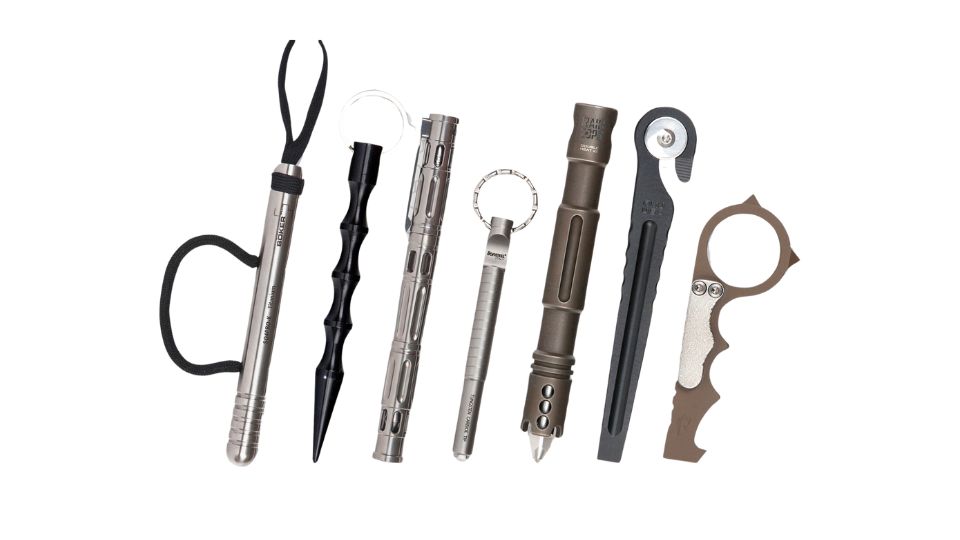
24. Books and Manuals
Knowledge is power, especially in emergency situations. Understanding how to use your food supply, administer first aid, and handle various survival scenarios can significantly increase your chances of staying safe and healthy.
These books and manuals are invaluable for skill-building and ensuring you’re prepared for anything:
- Survival Guides: Comprehensive survival guides cover a wide range of topics, from finding food and water to building shelter and navigating without a compass.
- First Aid Books: These books provide step-by-step instructions for treating injuries and managing medical emergencies, which is essential when professional medical services are unavailable.
25. Communication Devices
Communication devices help you maintain contact and signal for help when needed.
- Walkie-Talkies: These devices are excellent for short-range communication, especially in areas where cell phone service might be unreliable.
- Signal Flares: Useful for signaling for help in remote areas, as signal flares can alert rescuers to your location.
Conclusion
Being prepared for crises is a wise and practical decision that goes beyond being overly cautious. The list of 25 essential items every prepper should stockpile covers a broad range of needs, from food and water supplies to medical equipment, tools, and communication devices.
By ensuring you have a well-rounded stockpile, you can provide safety, comfort, and peace of mind for yourself and your loved ones during unexpected events. Each item on this list plays a vital role in maintaining health, safety, and survival, making it easier to navigate through emergencies with resilience and confidence.
kkkk
Leave a comment
Comments will be approved before showing up.
